Nostalgia, as they say, is a weird drug. Even the future looks better in the past.
Wait, what?
No, really. In the frantic, seconds-to-spare world of Right Now, the only future we can see is a sort of stretched-out sci-fi mild dystopia, too tepid to even be called properly evil. It’s a sort of beige, AI-interpreter, bedsit-on-Mars, everyone-connected-to-their-appliances sort of vision for the future. One where our food is vat grown because its nicer for the animals, we all communicate through our thick-framed nil-prescription hipster glasses and we’re on nodding terms with our pets, who by then will have been intellectually elevated far enough to converse fully with the more dysgenic members of humanity. It’s a boring sort of vision, blanded-out on social media screens and endless connectivity, while AI drones hector you for stepping on the grass or looking too longingly at another human being: Basically it feels like the present but more so, but then isn’t that the point of the future?
Ah, but for the futures of the past… remember flying cars?
Well no, you don’t, because they were always completely bonkers, although it’s ironic that just at the point of us all realizing that, battery and motor technology has finally matured enough that aerial drone taxis could yet become a thing. That’d be nice.
So where was I? Oh yes. We’re going to take a nostalgic trip into a time of two or three decades ago, before the advent of the Pocket Demon when men were real men, women were real women, nobody needed a certificate to prove it and a phone book was a physical book that you could use to hold down a floorboard. What dreams we had for the future… some of them were a bit nuts, mind you.
Let’s talk flying cars and soda-streams.
1: Endless Leisure. Your lunchtime pill, sir?
The horrific novelty of Angel Delight.
For those who don't know, Angel Delight was a flavoured powder which, when mixed with milk and a little elbow grease, congealed immediately into a sort of fluffy mouse-like dessert of various flavours. A product of 70s & 80s Britain, it’s a window onto what an alien society thought was the future. A society with a misanthropic relationship with food and a newly revved-up capitalist work ethic. Why sink all those hours into grinding domestic chores? You've got a world to conquer! Get at it.
This period would also see the Sodastream, a device for carbonating water and mixing flavoured colas in the home kitchen -just add the special syrup!- which is both ingenious and oddly dystopian. Nobody really wants to come face to face with the industrial reality of hyper processed food, so cola syrups and carbonation was a step too far. It spawned an entire future vision of pre-processed domestic ease though, inspired by the entry of the washing machine, dishwasher and microwave oven in previous decades.
That's what future visions are after all: An extrapolation of the recent past. They say little about technology but a lot about ourselves.
What it said about us, back then, was that we wanted more time and less domestic ritual. In the future, we'd get all our nutrition through pills and shakes. We wouldn't run or workout (who has the time?) but would take magic medicines that would render us healthy and fit without effort: Muscle tone and cardio health in a pill! Why not? Pharmaceutical science is the future, and nobody wants to get all sweaty. Get with the program, caveman!
Helper robots? Obviously. A techno-maid or robo-nanny? Inevitably. Every man will live like a lord after the rise of the robots, and what will we do with all that health and free time? Make more money, possibly, or just rise to be the best version of ourselves. Everything's possible in the future, 1980s style! But with shinier clothes and neon.
It didn't quite work out that way, but somehow we still ended up better off. Instant food was mostly dismissed as the atrocity it is, because… well. You can rattle on about taste and texture as much as you like, but I suspect we threw away the fad of the fast kitchen because of something more fundamental in our nature: We're snobs.
If you microwave an instant super meal or pop a nutri-pill then where's the opportunity to show off? Cooking lets us be snobby in three ways; we can show off our wealth with fresh fancy ingredients, we can show off our skills with the meal and our free time with the fact that we can make it at all. Remember the pandemic years? It was all banana bread and slow cookers.
We still want speed and convenience, but we're also a lot richer than we used to be. Far better to get a takeaway lamb karahi with an onion bhajee than to micro-nuke a ready meal. Somehow the 1980s never saw JustEat and Doordash coming, or the immigrant wave that can do all those cooking things for cheap, with the additional spice of class-based conceit thrown in for free.
We were probably never egalitarian enough for the 1980s future. Space communism is dead, and so is your Star Trek replicator.
Still, the domestic robots would have been nice.
Even there, shrinking family sizes wound down the sails on that particular dream; nobody wants robo-nanny for their little princes & princesses. And we're not dreaming of computerised insta-education either, now that our techno dreams are filled with entities that will do our thinking for us, while rendering movies of cats dancing on the moon.
The 80s and 90s rode high on domestic timesavers, and so that's what their visions of the future were filled with. Now we're high on connectivity and instant gratification, all knowledge at our fingertips if we just yield time to the Dopamine Demon.
And our dreams have become dark.
There's no food pills anymore, and no meat, because in a world of performative niceness we'd like to be kind to the cattle… by replacing them with soup in a bioreactor.
Still, we can always hope for flying cars.
2: Endless Space: Wake me when we reach the trans-Siberian tunnel.
The flying car has been a sci-fi staple forever and it speaks to something deep within us, that always craved to lead the tribe to the valley next door, just so long as nobody could stick an arrow in you. Freedom, but safe freedom. A flying car.
The 80s even foresaw flying trains.
In the past we took ever increasing and ever cheaper energy for granted, and our dreams reflected that. Speed, power, pace, distance… freedom. The heady mix that comes from energy abundance, before we became possessed by power puritanism. Welfare before Watts.
This effete environmentalism has poisoned our science fiction and infected our culture. At the turn of the century, Peter Hamilton's excellent Night's Dawn trilogy portrayed a sprawling interstellar confederation split into hard-tech ‘Adamists’ and bio-tech ‘Edenists’, with the implication that the eco-harmonious Edenists are the more noble of the two. Earth itself is choked with the hordes of humanity, sheltering from the armada-storms of a crumbling climate.
A later series of books, the Void Trilogy, goes further, depicting Earth as an underpopulated garden world. Here, the teeming hordes of the colonial-capitalist periphery will return in their old age, to transcend into a fuzzy sort of AI afterlife. It's a science fiction of its time, rendered with a sort of civilizational senescence, from industrial infancy to retirement in the garden.
And the Void itself, an expanding region that somehow mirrors our hopes & fears, promising a life of simple plenty, paid for by the process of absorbing everything it touches. There's a lot to unpack there.
But even our more humble, near-term visions of the future have changed. Back in the day, everyone ooh'd and aah'd over the promise of maglev trains, floating serenely over their tracks at completely unruly velocity. All the speed of air travel at twice the convenience and a fraction of the price. Hell, why not go even further? Set it in tunnels evacuated to a partial vacuum and your top speed is limited only by electrical induction: Intercontinental commuting for the common man, flitting between Moscow, Beijing, Paris… the world as global city, borders dulled and merged by the roaring concourse of metropolitan man.
Or instead of burrowing through the scenery you could fly over it. Air travel surely can only get faster, so board the suborbital express and ride an air breathing hybrid hypersonic craft to the edge of the atmosphere and down. Chart your commute as a ballistic parabola, sketched over the earth like aeronautical art.
It didn't quite happen that way. Speed limits stayed the same, or reduced under the bizarre promise of getting there faster by moving slower.
The democratisation of power and plenty was to have been rendered by the hydrogen fuel cell, powering every vehicle and giving every community its own hydrogen fuelled grid. Community independence and soft libertarianism; yesterday's dream, annihilated by pragmatism, bureaucracy and thermodynamics. I'm not sure which is the most powerful.
And our dreams became dark.
In the Western world, historically the centre of global innovation, we've been beset by the creeping advance of the regulatory state. We no longer yearn for bridges, tunnels and trains because we no longer build any. Instead, thousands of pages of environmental impact assessment must be written & re-written, mana to Paper Mountain. Committees heard, challenges listened to and special interests nodded at, and so nothing gets built.
It's gone on so long that it's poisoned our expectations. If we can't foresee a train station or a road being built, how can we divine a physical future? We've become poisoned by the past, wondering how the Victorians did what they did, not quite grasping that they weren't titans, but just normal people who weren't being told “No.”
Our patron Saint has stopped being Brunel and has become a sort of Dolores Umbridge character, a soft tyrant dividing and limiting for your own good. You don't need air conditioning, and perhaps you need to be told when it's the right time to switch the tumble dryer on. No wonder our visions of the future have turned inwards, to a hand-held square of illusion and promises of ever-greater connectivity.
So as we move from Asimov to Hamilton to Black Mirror, what next? Personally I have high hopes for Chinese science-fiction: Our visions of the future are leveraged from the recent past after all, and for all their authoritarianism at least the Chinese, untrammelled by their past, are actually building the society they want to see.
Building inspires creativity. Curation doesn't.
But maybe this has to go full-circle: As we chase ourselves down a social media rabbit hole, we turbocharge the Pocket Demon with ever more intellect. Hopefully, maybe, after a terrible singularity of the soul, AI suffusion becomes so complete that we lose track of what's real or not and throw away our phones in disgust. We'll walk out squinting into a world we once knew, powered by fresh determination.
And realise once more that, yes, we can just go ahead and build things.
Back to The Future we go.




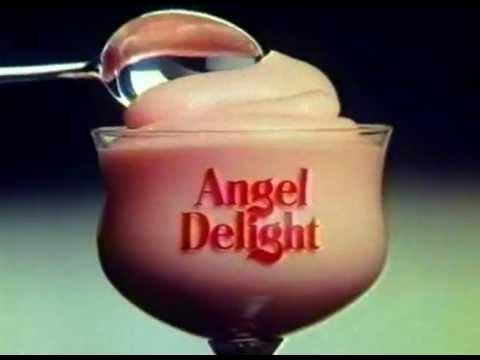

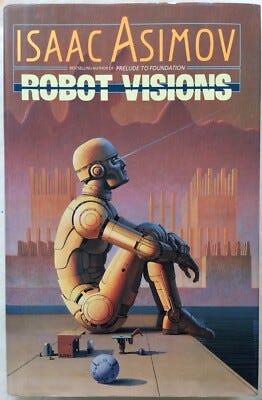
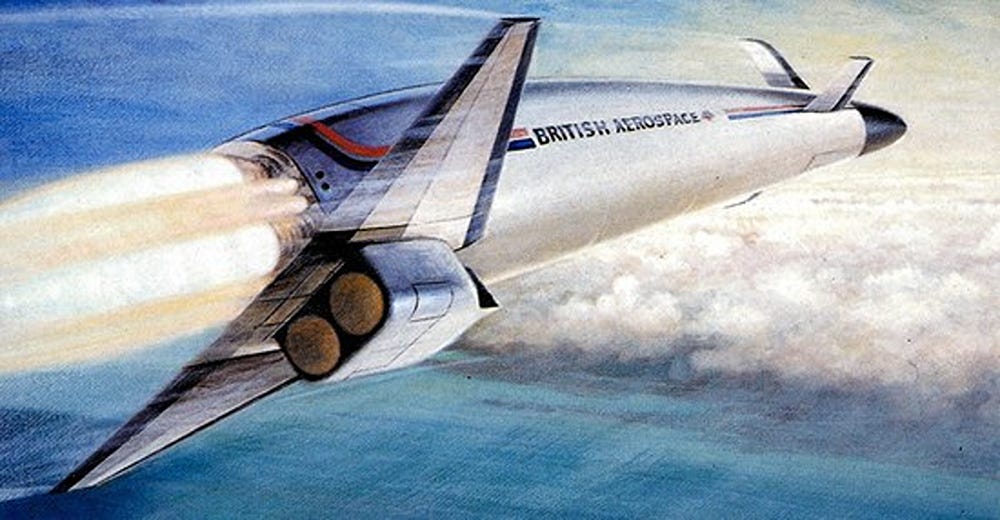
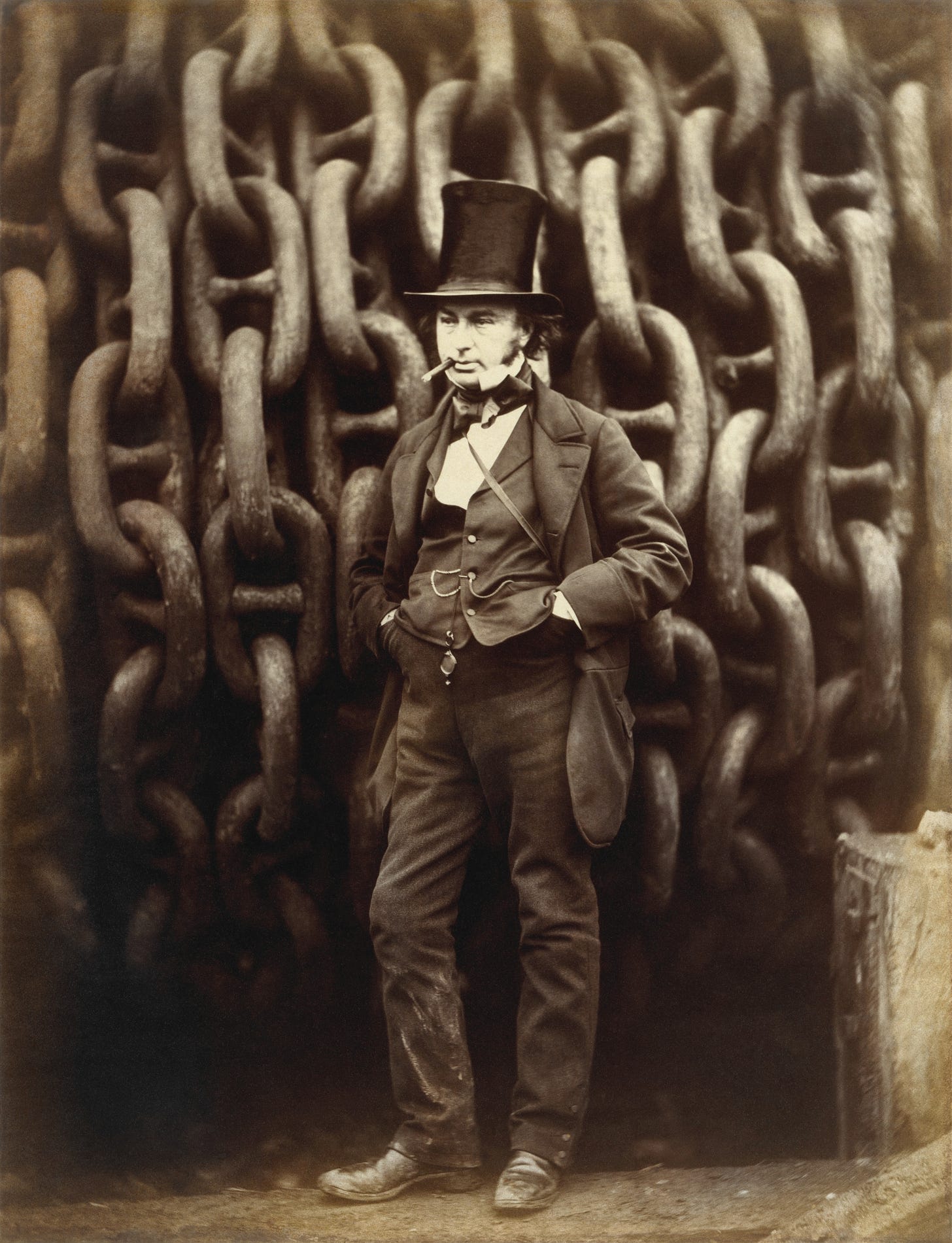
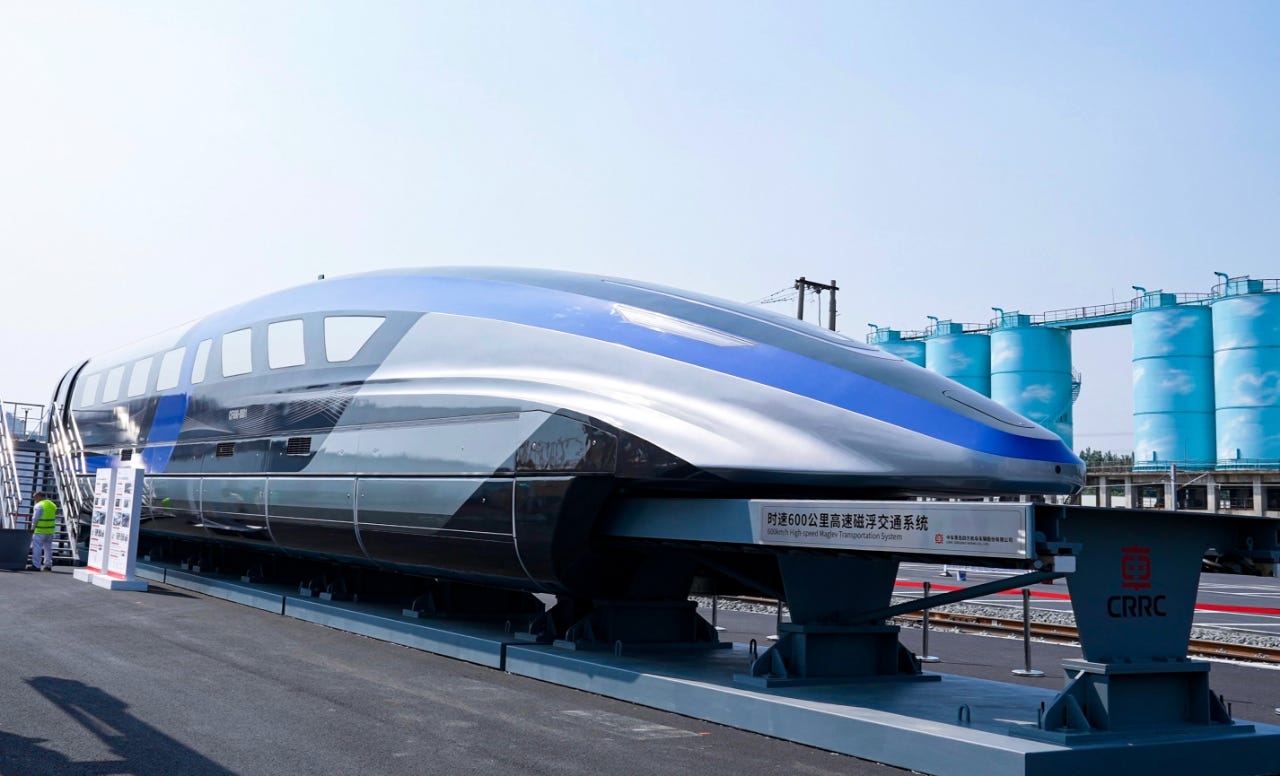
Angel Delight was definitely an unpalatable stain on dinner tables during the 1970s and, unbelievably, you can still buy it today. It had a far superior competitor though, which I suppose as a result of inferior marketing - the name itself must have put off many potential buyers, has long since vanished from store shelves. Instant Whip was the future we all wanted and still deserve!
https://www.theguardian.com/food/2023/mar/09/oh-the-sweet-joy-of-instant-whip
"Back to The Future we go"
I like that!